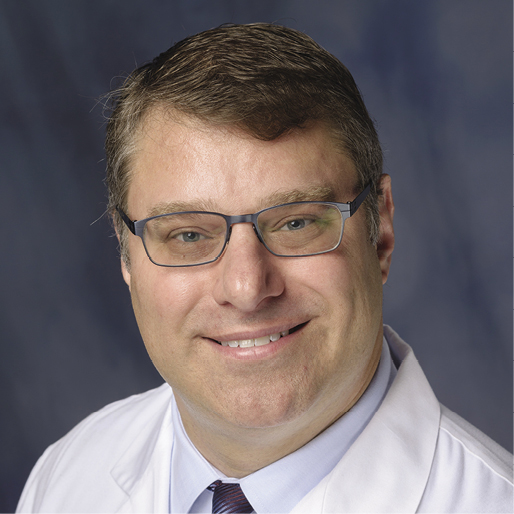Philip Efron, M.D.
Professor of Surgery
College of Medicine
2023 Awardee
Philip A. Efron serves as a professor of surgery and medical director for the UF Health Shands Hospital surgical intensive care units. With a professional interest in both clinical and laboratory surgical critical care and trauma, Efron aims to ensure the success of UF Health’s first critical care organization. Currently, he is a principal investigator for an NIH-funded P50 center grant for the UF Sepsis and Critical Illness Research Center.
Efron’s research was the first to reveal in human sepsis the expansion of myeloid-derived suppressor cells. After studying these cells, which expand during various pathological conditions like cancer and other traumas, he was able to determine their effect on post-infection and injury immunosuppression and their independent association with poor outcomes in sepsis patients. His efforts resulted in a generally accepted theorem for the pathophysiology driving chronic critical illness morbidities, offering a conceptual framework for underlying pathophysiology mechanisms.
“I continuously evolve to ensure my work remains critically relevant and important to the field of critical care,” Efron said.
Efron has authored 256 peer-reviewed manuscripts, and he has been invited to speak at many national and international meetings. He currently serves as co-director on the UF Department of Surgery’s multidisciplinary NIGMS RM1 grant, co-principal investigator on the multidisciplinary murine sepsis-R01 AD/ADRD grant and co-principal investigator on the SPIES multi-institutional R01. In the last five years, his efforts have guided the scientific community in the prevention of infections in cardiac surgery research by focusing on dysfunctional emergency myelopoiesis.
Efron graduated from the University of Maryland School of Medicine in 1999, completed his surgical residency at UF in 2007 and completed his fellowship in surgical critical care in 2008 at Washington University in St. Louis. During his studies, he served as a T32 research fellow in the UF Laboratory of Inflammation Biology and Surgical Science and received the Edward R. Woodward Surgical Resident’s Award.
Efron expects to deliver new findings on what drives poor outcomes following sepsis and trauma. He prides himself on being able to do what he loves every day, which is providing surgical critical care to those in need.


